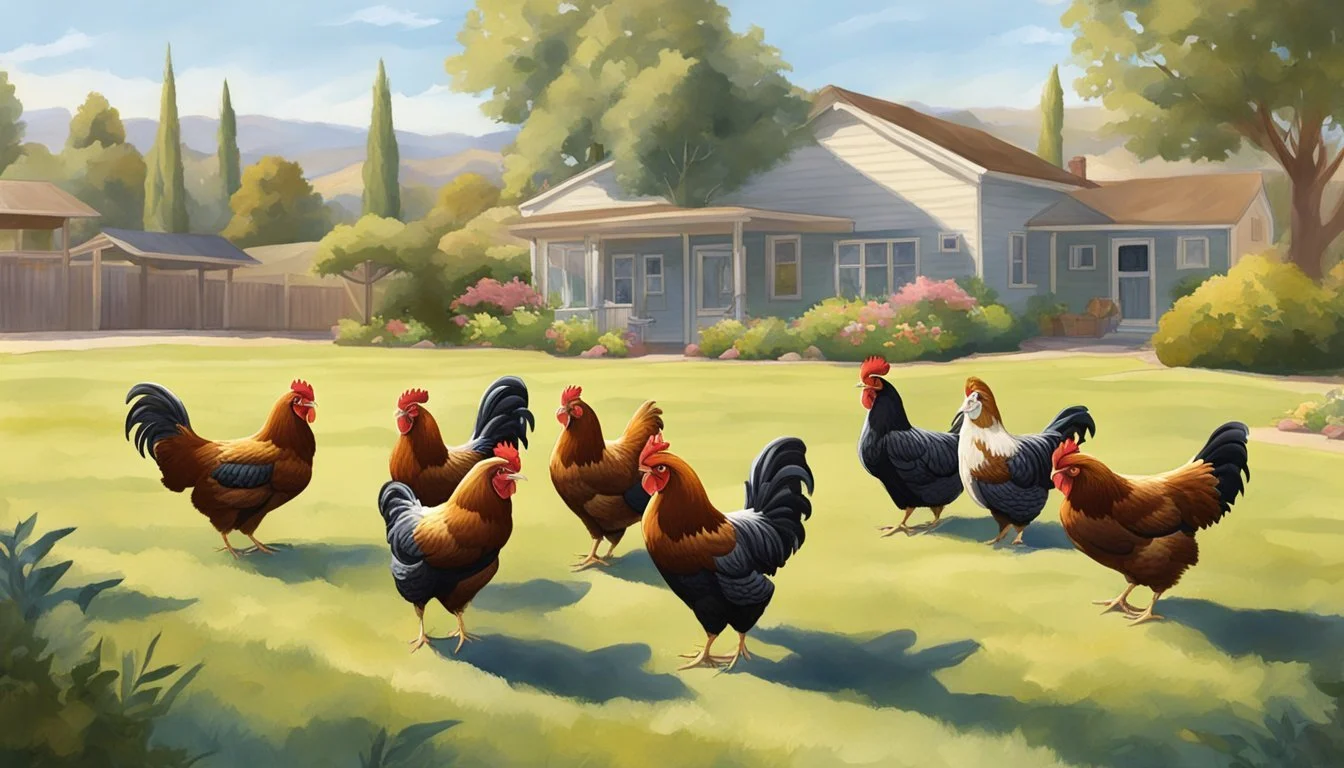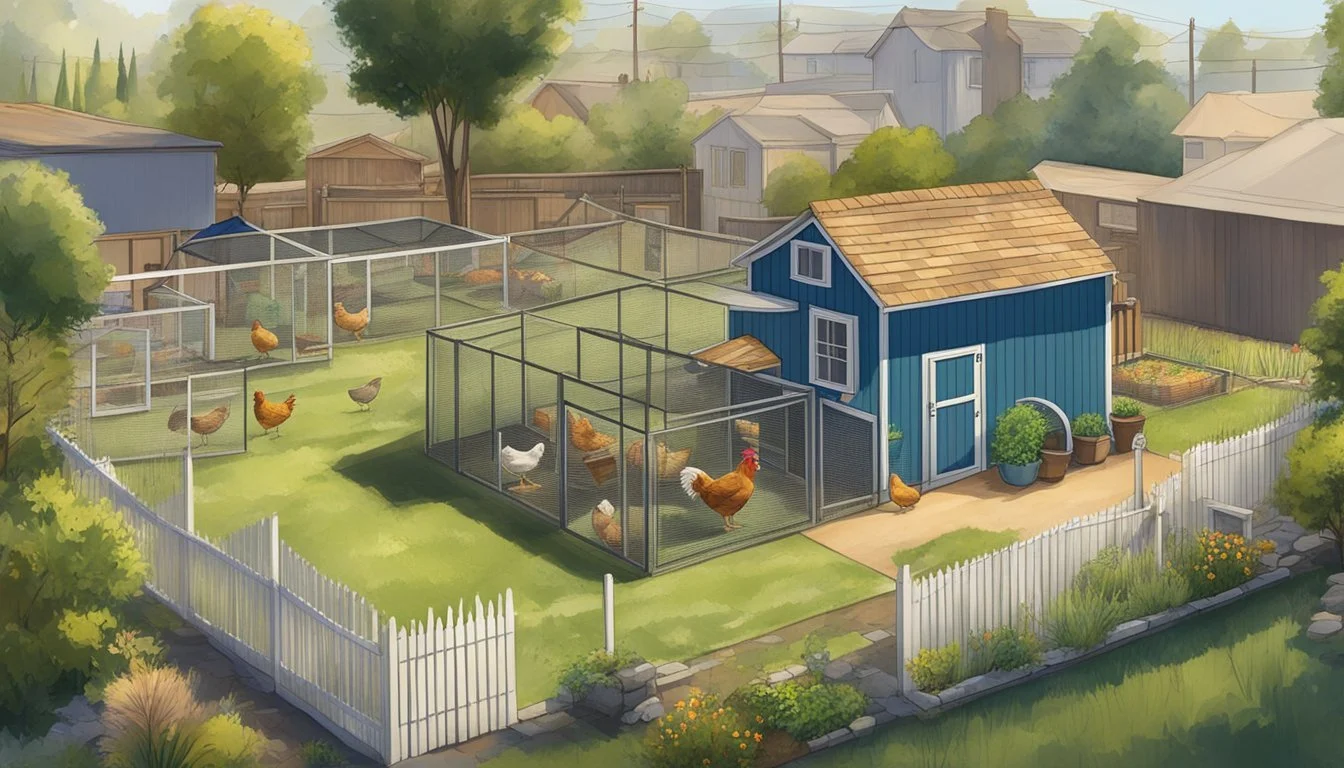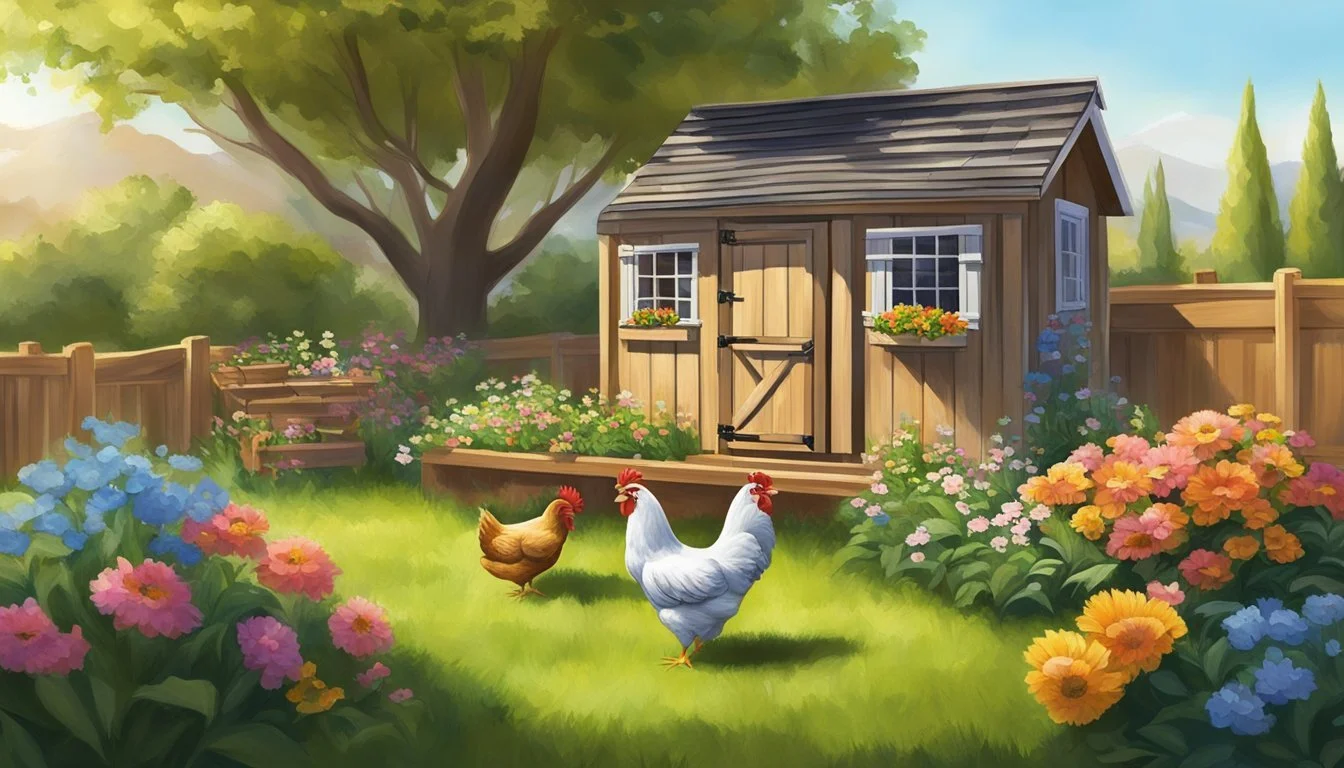Keeping Backyard Chickens in Antioch, CA
Essential Tips for Raising Healthy Fowl
Keeping backyard chickens has become a popular pursuit for residents in Antioch, California. Many individuals in this vibrant city choose to raise chickens for their fresh eggs, natural pest control, and as engaging pets. The city acknowledges this trend and allows the practice within its limits, subject to specific regulations to ensure the well-being of both the chickens and the community at large.
In Antioch, individuals are permitted to keep a certain number of fowl, including chickens. The local ordinance stipulates that residents may maintain up to ten individual chickens without the need for a special permit. If a resident wishes to keep more than ten chickens, or decides to keep a rooster, a permit is required. This ensures that the number of chickens is manageable and minimizes the potential for noise and disturbances, contributing to the harmony within the neighborhood.
Furthermore, all fowl kept should be housed in enclosures that are a minimum of 20 feet from any residing dwelling to prevent any odor or noise concerns. These rules reflect the city's commitment to balance the interests of backyard chicken enthusiasts with those of the broader community. Compliance with these regulations ensures that residents can enjoy the benefits of keeping chickens while maintaining the peace and sanitation of their environment.
Local Legislation and Zoning Laws
Navigating the local legislation and zoning laws is crucial for Antioch residents interested in raising backyard chickens. It ensures compliance with city codes and helps maintain neighborhood harmony.
Understanding Zoning Ordinances
Zoning ordinances in Antioch dictate where residential fowl-keeping is permissible. These local laws are designed to be compliant with broader regulations spanning from San Francisco to Los Angeles. Residents must refer to the specific zoning provisions pertaining to their area to determine eligibility for keeping chickens.
Permit Requirements
Antioch requires residents to obtain a permit if they wish to keep more than ten birds, or if owning a rooster is desired. The permitting process involves inspection to ensure adherence to city codes and may vary slightly compared to other Californian cities like San Diego, Oakland, or Sacramento.
Permitting Process:
Application submission
Property inspection
Fee payment
Number and Types of Chickens Allowed
The city's regulations specify the number of chickens a household can keep without a permit—typically up to ten fowl. This generally pertains to hens as they are quieter and less likely to disrupt neighbors. The regulations in Antioch align with common restrictions found in other state localities such as Bakersfield.
Rooster Ownership Regulations
Roosters have additional restrictions due to potential noise issues. Owning a rooster in Antioch necessitates a permit, and the city may impose regulations on the number of roosters allowed to mitigate disturbances.
Penalties and Fines for Non-Compliance
Non-compliance with local ordinances and permit requirements can result in penalties. Antioch, similar to other California cities, imposes fines and penalties to ensure residents follow local laws:
Non-Compliance Consequences:
Fines of varying amounts
Mandatory removal of fowl
Possible animal control intervention
Setting up Your Chicken Coop
A successful backyard chicken endeavor in Antioch starts with a well-thought-out chicken coop setup. This impacts the health and happiness of the chickens, as well as the ease of maintenance for the owner.
Choosing the Right Location
When selecting a spot for a chicken coop, ensure it's at least 20 feet away from all dwellings. Look for a high, well-drained area to prevent flooding, and consider sunlight exposure and wind patterns for comfort and health. The coop should be accessible for easy cleaning and inspection.
Coop Design and Requirements
A coop's design dictates the quality of life for its inhabitants and the ease of care they can be given. Coops must provide:
At least 2-3 square feet per chicken inside the coop
Additional 8-10 square feet per chicken in an outdoor run
Ventilation without draft to maintain air quality
Nesting boxes (1 per 4-5 hens)
Perches for roosting
The coop should be designed for easy access to aid in cleaning and to collect eggs without causing stress to the chickens.
Protecting from Predators
Predator protection is critical. Strategies include:
Securing the coop and run with hardware cloth (not chicken wire, as it is not predator-proof)
Burying the wire at least 12 inches underground
Adding a wire skirt around the coop to deter digging animals
Ensuring all doors and access points have secure locks
Maintenance and Upkeep
Regular maintenance is necessary for the health of the chickens and the cleanliness of the coop.
Daily: Remove waste, refill water and food containers.
Weekly: Inspect for signs of wear or damage, check for mites and lice.
Monthly: Deep clean, which includes washing surfaces and replacing bedding.
Seasonally: Perform a thorough inspection and maintenance of the coop's structure and security features.
Using these tips will ensure a safe, clean home for your backyard chickens, while also simplifying the process of caring for them.
Chicken Care and Management
Managing a backyard flock in Antioch involves ensuring the chickens' dietary needs are met, maintaining their health, establishing daily routines, and implementing proper waste management practices to maintain hygiene.
Feeding Your Chickens
Chickens require a balanced diet to remain healthy and productive. A standard feed from a feed store suited to the chickens' age—starter for chicks, grower for juveniles, and layer feed for laying hens—is essential. It's important to supplement their diet with calcium, like oyster shell, for strong eggshells. Provide constant access to clean water, and avoid feeding them toxic foods such as chocolate, avocado, or onion.
Health and Veterinary Care
Regular health check-ups can prevent disease and parasites, crucial for flock wellbeing. Symptoms to watch for include abnormal behavior, decreased appetite, or drops in egg production. Consult with a veterinarian familiar with poultry to establish a health plan. Vaccinations and treatments for common diseases should be part of routine care.
Daily Routines and Chicken Behavior
Understanding chicken behavior is key to daily management. Chickens are naturally active at dawn and dusk and require access to a secure coop for nighttime protection. They exhibit social behaviors, such as establishing pecking orders. Daily collection of eggs prevents broodiness and egg-breaking, while regular coop inspections ensure the environment remains safe and clean.
Handling Waste and Hygiene
Good hygiene practices are essential to keep chickens and their environments clean. Coops should be cleaned weekly, with waste removed and nesting materials replaced. A well-ventilated coop prevents ammonia buildup, which can harm respiratory health. Composting chicken waste creates an excellent fertilizer for gardens, but it must be managed to prevent attracting pests or spreading disease.
Community Relations and Legal Considerations
Keeping backyard chickens in Antioch, CA, involves respect for neighbor relations and adherence to city ordinances. Homeowners must be vigilant about noise management, understand the process for addressing complaints, and engage positively within local urban agriculture networks.
Managing Noise and Neighbor Relations
Residents with backyard chickens in Antioch should consider their neighbors to maintain a harmonious community. Local laws necessitate roosters to be kept in such a manner that they do not cause disturbance with excessive noise. Furthermore, it is crucial for owners to secure a permit when required by the municipal code. Chickens must be housed at least 20 feet from any dwelling to minimize issues.
Key Strategies:
Employ soundproofing methods for coops.
Avoid keeping roosters, if possible, to reduce noise.
Navigating Complaints and Animal Control
When neighbors file complaints, an animal control officer may inspect to ensure compliance with local laws. Owners of backyard chickens must keep their fowl at large, and failure to contain chickens properly could result in fines. If chickens are deemed a nuisance or a threat to public health, animal control has the authority to intervene.
Responding to Complaints:
Owners should address concerns promptly and courteously.
Cooperate fully with animal control to resolve issues.
Participating in Local Urban Agriculture Communities
Participation in local communities focused on urban agriculture can lead to better understanding and practice of backyard chicken keeping. Engaging with the community provides opportunities to share knowledge about ethical livestock management and local regulations.
Community Engagement:
Join local forums and workshops on urban agriculture.
Share experiences and tips on best practices for keeping chickens.
By maintaining respectful neighbor relations, adhering to the legal requirements of chicken ownership, and participating actively in the local community, residents of Antioch can enjoy the benefits of owning backyard chickens while upholding responsibilities and fostering positive community relations.
Additional Resources
For residents of Antioch, CA who are interested in or currently keeping backyard chickens, there are valuable resources at their disposal. These resources range from local workshops for hands-on learning to groups and materials that offer detailed insights and a platform for community engagement.
Local Workshops and Educational Programs
Residents can enhance their knowledge and skills by participating in local workshops and educational programs. The City of Antioch and local farms often host events focused on the care and keeping of backyard chickens. These programs cover important topics like local laws, permitting, and health requirements to ensure community members are well-informed on how to properly manage their flocks within city regulations.
Further Reading and Chicken Enthusiast Groups
For those seeking more information, a variety of books and online publications are dedicated to the care of backyard chickens. Furthermore, joining local chicken enthusiast groups can be hugely beneficial. Groups such as the Antioch Backyard Chicken Facebook Group or Meetup communities provide places for chicken owners to connect, share experiences, and offer mutual support. They also often discuss local laws and best practices for maintaining good relationships with neighbors and keeping healthy livestock within the community context.
Conclusion
In Antioch, California, residents are permitted to keep backyard chickens, given they comply with specific local ordinances. A permit is typically required, and there's a cap on the number of fowl one can maintain. It's important for chicken owners to be aware of and adhere to these regulations to ensure the health and safety of both the chickens and the community.
Permit Requirements: Residents must secure a permit to raise chickens, abiding by local codes.
Population Limit: There is a limit to the number of chickens one may own, supporting the welfare of the birds and addressing potential neighborhood concerns.
Enclosure Specifications: Coops must be at least 20 feet from neighboring dwellings, reducing nuisances and promoting sanitary conditions.
Raising fowl within city limits offers rewards; however, the responsibility to adhere to city ordinances is paramount. Owners must consider animal health by providing proper care and maintaining clean coops. Neglect can lead to health issues and attract pests, so routine coop maintenance is crucial.
For sustainable urban agriculture, individuals considering backyard chickens must evaluate the commitment required to uphold Antioch’s standards. This ensures that their poultry-keeping practices are conducive to a harmonious and healthy community.







